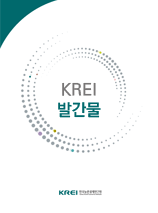
- Evaluation of FTA Supplementary Measures for Domestic Market in 2014 and Future Challenges
-

-
○ As the Korea-US and Korea-EU FTAs came into effect, the Korean government established FTA supplementary measures, which are classified into 5 sectors and 18 project categories according to the purpose of a policy and the contents of a project. For the last 7 years from 2008 to 2014, the government allocated KRW 17.4777 trillion of investment and loans for the measures and spent KRW 14.8849 trillion.
- To be specific, KRW 6.209 trillion (40.4%) of investment and loans were spent for improving the competitiveness of the livestock industry; KRW 1.3538 trillion (9.1%) for improving the competitiveness of the horticultural industry; KRW 4.6852 trillion (31.5%) for implementing tailored agricultural policies; KRW 2.5125 trillion (16.9%) for creating new growth engines; and KRW 312.5 billion (2.1%) for providing short-term compensation for income loss.
- In 2014 alone, the government spent KRW 3.329 trillion, 82% of the total investment and loans allocated for the year (KRW 4.588 trillion).
○ In the livestock and fruit-growing sectors, the supplementary measures have contributed to reducing costs and labor force in the short term, and continued efforts will be made for long-term growth.
- Thanks to the implementation of the modernization project for livestock and fruit-growing facilities, productivity has improved while production cost has been reduced, and beneficiaries have remained highly satisfied with the project.
- Supports for the mid- and long-term growth of these sectors will be continued by promoting eco-friendly agricultural and livestock products and improving livestock breeds and seeds.
- However, there are several stumbling blocks, including complicated rules and procedures of the application for such supports and burdens of interest rates and collateral of loans and interest make-up schemes.
○ The supplementary measures have contributed to stabilizing the management of farms by implementing tailored agricultural policies, and laid the groundwork for future growth engines by establishing infrastructure for environment-friendly farming and facilitating the export of agricultural products.
- Projects such as the Farmland Purchase and Reserve Project, the Direct Payment for Transfer of Management, and the Farmland Pension have improved the efficiency of the use of farmland and stabilized the management of farms and life of aged farmers.
- Although the low-pesticide certification system is about to be abolished and the total area of farmlands with eco-friendly certification has reduced, efforts for establishing the infrastructure for environmentally friendly farming have been continuously made by designating 4 new Metropolitan Eco-friendly Farming Complexes and 29 new Eco-friendly Farming Zones.
- The policy of promoting the export of agricultural products has contributed to pioneering new markets for agri-food and creating the infrastructure for exporting agricultural products.
○ For improving the effectiveness of the FTA supplementary measures and the satisfaction level of farmers, it is crucial to alleviate the burden of collateral on farmers, set realistic interest rates, integrate similar projects, and adjust the amount of support.
- Considering that most investment projects for facilities are implemented by providing loans or interest make-up, it is needed to ease the burden of collateral and apply variable interest rates.
- It is also necessary to adjust the amount of support for upland farming to provide realistic direct payment by comparing it with the fixed direct payment for rice farming. -
목차
요약문
○ As the Korea-US and Korea-EU FTAs came into effect, the Korean government established FTA supplementary measures, which are classified into 5 sectors and 18 project categories according to the purpose of a policy and the contents of a project. For the last 7 years from 2008 to 2014, the government allocated KRW 17.4777 trillion of investment and loans for the measures and spent KRW 14.8849 trillion.
- To be specific, KRW 6.209 trillion (40.4%) of investment and loans were spent for improving the competitiveness of the livestock industry; KRW 1.3538 trillion (9.1%) for improving the competitiveness of the horticultural industry; KRW 4.6852 trillion (31.5%) for implementing tailored agricultural policies; KRW 2.5125 trillion (16.9%) for creating new growth engines; and KRW 312.5 billion (2.1%) for providing short-term compensation for income loss.
- In 2014 alone, the government spent KRW 3.329 trillion, 82% of the total investment and loans allocated for the year (KRW 4.588 trillion).
○ In the livestock and fruit-growing sectors, the supplementary measures have contributed to reducing costs and labor force in the short term, and continued efforts will be made for long-term growth.
- Thanks to the implementation of the modernization project for livestock and fruit-growing facilities, productivity has improved while production cost has been reduced, and beneficiaries have remained highly satisfied with the project.
- Supports for the mid- and long-term growth of these sectors will be continued by promoting eco-friendly agricultural and livestock products and improving livestock breeds and seeds.
- However, there are several stumbling blocks, including complicated rules and procedures of the application for such supports and burdens of interest rates and collateral of loans and interest make-up schemes.
○ The supplementary measures have contributed to stabilizing the management of farms by implementing tailored agricultural policies, and laid the groundwork for future growth engines by establishing infrastructure for environment-friendly farming and facilitating the export of agricultural products.
- Projects such as the Farmland Purchase and Reserve Project, the Direct Payment for Transfer of Management, and the Farmland Pension have improved the efficiency of the use of farmland and stabilized the management of farms and life of aged farmers.
- Although the low-pesticide certification system is about to be abolished and the total area of farmlands with eco-friendly certification has reduced, efforts for establishing the infrastructure for environmentally friendly farming have been continuously made by designating 4 new Metropolitan Eco-friendly Farming Complexes and 29 new Eco-friendly Farming Zones.
- The policy of promoting the export of agricultural products has contributed to pioneering new markets for agri-food and creating the infrastructure for exporting agricultural products.
○ For improving the effectiveness of the FTA supplementary measures and the satisfaction level of farmers, it is crucial to alleviate the burden of collateral on farmers, set realistic interest rates, integrate similar projects, and adjust the amount of support.
- Considering that most investment projects for facilities are implemented by providing loans or interest make-up, it is needed to ease the burden of collateral and apply variable interest rates.
- It is also necessary to adjust the amount of support for upland farming to provide realistic direct payment by comparing it with the fixed direct payment for rice farming.저자정보
저자에게 문의
구매안내
KREI의 출판물은 판매 대행사 (정부간행물판매센터)와 아래 서점에서 구입 하실 수 있습니다.
판매대행사
- (주)정부간행물판매센터http://www.gpcbooks.co.kr사이트 바로가기
- 서울특별시 중구태평로 1가 25번지
- TEL 02) 394-0337, 734-6818
- FAX 02) 394-0339
판매서점
판매서점 교보문고 http://www.kyobobook.co.kr/ 영풍문고 http://www.ypbooks.co.kr/ 알라딘 http://www.aladin.co.kr/ 활용도 정보
활용도 정보 상세정보 조회 좋아요 다운로드 스크랩 SNS공유 4501 0 5 0 0 -
- Suggestions to Promote the Hometown Love Donation System
- Gouk, Seungyong
- 2022.11.25
- KREI 이슈리포트
-
- Ten Years of Korea-U.S. FTA: focusing on agri-food trade
- Kim, Kyungphil
- 2022.06.09
- KREI 이슈리포트
-
- Impacts of Ukraine-Russia Conflict on Global Grain Prices
- Kim, Jongjin
- 2022.03.31
- KREI 이슈리포트
-
- The Impacts of the COVID-19 on the Korean Agricultural Market
- Seo, Hong-Seok
- 2020.06.05
- KREI 이슈리포트
-
- 10 Agricultural Policy Issues of Korea in 2019
- Jeong, Minkook
- 2019.01.29
- KREI 이슈리포트
-
- State of Korean and Overseas Markets for Environment-Friendly Agricultural Products and Challenges 2018
- Jeong, Hakkyun; Sung, Jaehoon; Lee, Hyeonjeong
- 2018.09.12
- KREI 이슈리포트
-
- Measures to Establish the Water-Energy-Food Nexus for Agricultural Resource Management
- Sung, Jaehoon; Cho, Wonju; Lee, Hyeonjeong
- 2018.09.05
- KREI 이슈리포트
-
- Changes in the Trade of Agricultural and Livestock Products and Implications after Seven Years from the Enforcement of the Korea-EU FTA
- Song, Woojin; Lee, Hyunkeun; Myeong, Suhwan; Yoo, Juyoung
- 2018.06.29
- KREI 이슈리포트
-
- 10 Agricultural Policy Issues of Korea in 2018
- Kim, Byoungryul
- 2018.01.22
- KREI 이슈리포트
-
- Income Changes by Type of Farm Household and Implications
- Woo, Byungjoon
- 2017.11.30
- KREI 이슈리포트
-
- Income Changes by Type of Farm Household and Implications
- Woo, Byungjoon
- 2017.11.30
- KREI 이슈리포트
-
- 10 Agricultural Policy Issues of Korea in 2019
- Jeong, Minkook
- 2019.01.29
- KREI 이슈리포트
-
- 10 Agricultural Policy Issues of Korea in 2018
- Kim, Byoungryul
- 2018.01.22
- KREI 이슈리포트
-
- Job Creation Potential for the Youth and Challenges in the Agricultural Industry
- Ma, Sangjin
- 2017.01.01
- KREI 이슈리포트
-
- Implementation Plan and Implications of International Development Cooperation Projects for Agriculture in 2017
- Heo, Jang
- 2017.04.28
- KREI 이슈리포트
-
- 2016 Production Status and Market Prospect of Eco-Friendly Agricultural Products at Home and Abroad
- Jeong, Hakkyun; Lee, Hyejin; Kim, Changgil
- 2016.11.30
- KREI 이슈리포트
-
- The Impacts of the COVID-19 on the Korean Agricultural Market
- Seo, Hong-Seok
- 2020.06.05
- KREI 이슈리포트
-
- Global Spread of Saemaul Undong for Rural Development in Developing Countries
- Heo, Jang; Lee, Yoonjung
- 2016.11.30
- KREI 이슈리포트
-
- Goals and Strategies to Reduce Greenhouse Gas Emissions in the Agriculture Sector
- Jeong, Hakkyun; Kim, Changgil
- 2015.11.03
- KREI 이슈리포트
-
- 70 Years' Achievements and New Challenges of Korean Agriculture and Rural Communities
- Song, Miryung; Moon, Hanpil; Kim, Meebok; Seong, Jooin; Lim, Jieun
- 2015.09.15
- KREI 이슈리포트
의견남기기


